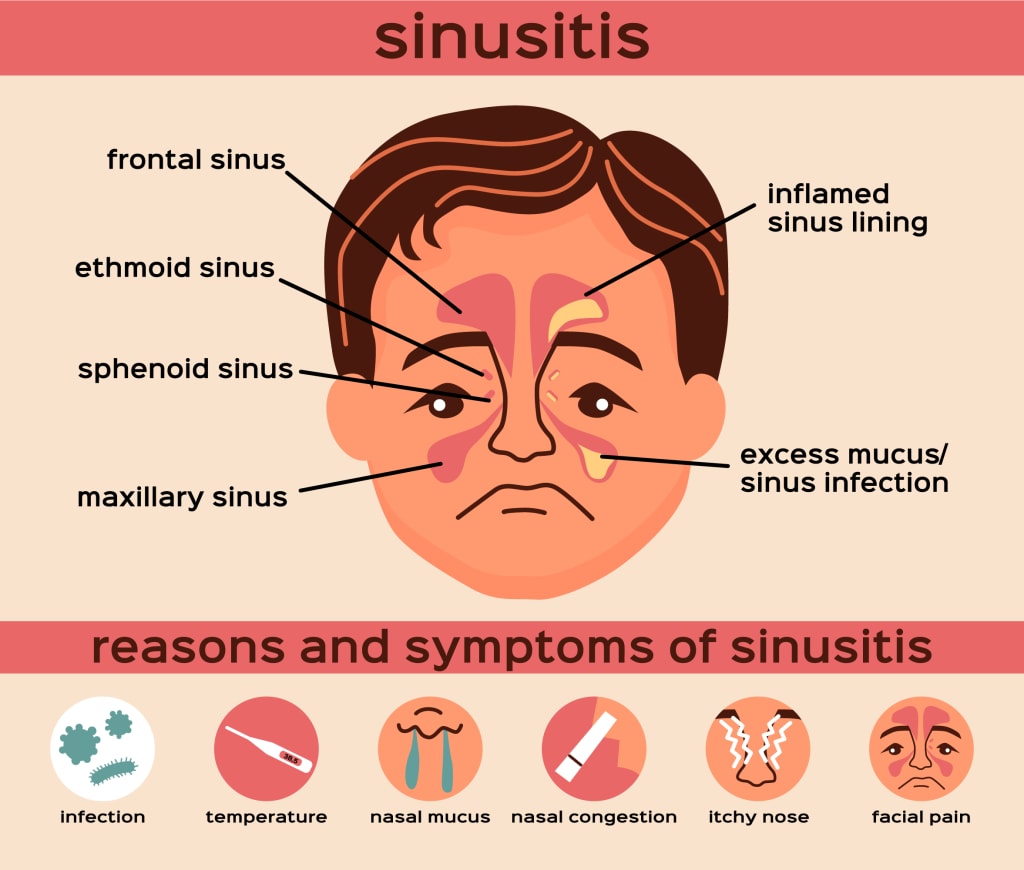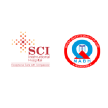Sinus Infection Treatment: Causes and Symptoms
Unveiling Sinusitis: Understanding its Origins and Signs

Sinus infections, also known as sinusitis, can make many people around the world feel really uncomfortable and sometimes very sick. From the pressure behind the eyes to the relentless nasal congestion, sinusitis can disrupt daily life and hinder productivity. However, understanding its causes, recognizing its symptoms, and exploring effective treatment options can provide much-needed relief and help restore vitality. In this comprehensive guide, we delve into the depths of sinus infection treatment, shedding light on its underlying causes and manifestations.
Understanding Sinusitis
Sinusitis happens when the tissue inside your sinuses gets swollen or inflamed. These hollow spaces in the skull, located behind the forehead, nasal bones, cheeks, and eyes, play a crucial role in producing mucus that moisturizes the nasal passages and filters out potential pathogens. When the sinuses get swollen, they can get blocked, causing mucus to build up. This creates a good environment for germs or viruses to grow.
Causes of Sinus Infections
Several factors can contribute to the development of sinusitis, including:
- Viral infections: like the common cold and flu viruses are often the main reasons for getting acute sinusitis. These viruses can inflame the sinus membranes, triggering symptoms such as nasal congestion, facial pain, and headache.
- Bacterial Infections: In some cases, bacterial infections can follow a viral illness or occur independently. Certain bacteria, such as Haemophilus influenzae and Streptococcus pneumoniae, can enter the sinuses and cause long-lasting symptoms as well as potential issues if left untreated.
- Allergies: happen when your body reacts to things like pollen, dust mites, or pet fur. This reaction can make the inside of your nose swollen and irritated, which can make your sinuses feel blocked and uncomfortable.
- Nasal Polyps: These noncancerous growths in the nasal cavity or sinuses can obstruct normal drainage and ventilation, increasing the risk of sinus infections.
- Deviated Septum: A crooked or deviated nasal septum can impede proper airflow and drainage, creating a conducive environment for sinusitis.
Symptoms of Sinus Infections
Understanding the symptoms of sinusitis is essential for a timely diagnosis and successful treatment. Common symptoms include:
- Nasal Congestion: Difficulty breathing through the nose due to blockage or swelling of the nasal passages.
- Facial Pain or Pressure: Discomfort or tenderness around the eyes, forehead, cheeks, or nose, often worsening when bending forward or lying down.
- Headache: Often linked to sinusitis, it's a dull, pounding pain felt in the front of the head, on the sides near the temples, or at the back of the head.
- Thick Nasal Discharge: Yellow or greenish mucus draining from the nose, indicating an immune response to infection.
- Cough: A persistent cough, particularly worse at night, may occur due to postnasal drip or irritation of the throat.
- Fatigue: Sinus infections can leave individuals feeling tired and lethargic, impacting daily activities and productivity.
Sinus Infection Treatment Options
Effective management of sinusitis aims to alleviate symptoms, reduce inflammation, and eradicate underlying infections. Depending on the sinus infection's severity and underlying cause, different treatment methods may be available. Here are a few typical methods:
- Nasal Decongestants: Using over-the-counter nasal sprays or drops that contain decongestants like oxymetazoline or phenylephrine, you can temporarily relieve congestion by helping to reduce swelling nasal tissues. However, prolonged use can lead to rebound congestion, so it's essential to use them as directed.
- Saline Nasal Irrigation: Rinsing the nasal passages with a saline solution can help flush out mucus and allergens, promoting sinus drainage and relieving congestion. Neti pots, squeeze bottles, or nasal irrigation kits are commonly used for this purpose.
- Antibiotics: In cases of bacterial sinusitis or complications such as sinusitis exacerbation, antibiotics may be prescribed to target the underlying infection. It's crucial to complete the full course of antibiotics as directed by a healthcare provider to prevent recurrence and antibiotic resistance.
- Pain relievers: Acetaminophen or ibuprofen, two over-the-counter pain relievers, can help reduce the fever, headache, and facial pain that come with sinusitis. However, because of the possibility of Reye's syndrome, aspirin should not be given to adolescents or teenagers.
- Allergy Management: Reducing the chance of sinusitis and preventing allergy reactions can be achieved by avoiding irritants such pollen, dust, and pet dander. To help with symptoms, doctors might give you allergy medicines like nasal sprays with corticosteroids or antihistamines.
- Surgery: In cases of chronic or recurrent sinusitis resistant to conservative treatments, surgical intervention such as endoscopic sinus surgery may be considered to improve sinus drainage and ventilation. This procedure involves removing obstructive tissue or enlarging the sinus openings to facilitate better airflow.
Prevention is Key
While sinus infections can be challenging to avoid entirely, adopting healthy habits and minimizing exposure to potential triggers can help reduce the risk of recurrence. Here are some preventive measures to consider:
- Keep Clean: Wash your hands regularly with soap and water, especially when it's cold or flu season, to avoid spreading germs that can cause sinus infections.
- Keep Yourself Hydrated: To keep your nasal passages moist and promote healthy drainage, drink lots of water or herbal teas.
- Using a humidifier: A humidifier delivers moisture to the air, which helps lessen the chance of sinus infections and avoid dry nose, particularly in the winter when indoor heaters can dry out the air.
- Minimize Exposure to Airborne Irritants: Strong scents, air pollution, and cigarette smoke are examples of airborne irritants that can aggravate sinuses and cause inflammation.
- Handle Allergies: If you have allergies, create a thorough strategy with your doctor that includes avoiding triggers, taking prescribed allergy medication, and, if necessary, exploring allergy immunotherapy.
Looking for the Best ENT Hospital in Delhi Visit Sci Delhi
Conclusion:
Sinus infections can cast a shadow over daily life, but with the right knowledge and proactive management, relief is within reach. By understanding the causes, recognizing the symptoms, and exploring effective treatment options, individuals can take control of their sinus health and breathe easier once again. Whether through nasal decongestants, saline irrigation, antibiotics, or allergy management, there are numerous strategies available to alleviate sinusitis and restore vitality. Remember, prevention is key, so prioritize good hygiene, hydration, and allergy management to minimize the risk of sinus infections and enjoy a life free from sinus-related woes.
About the Creator
SCI International Hospital
SCI Hospital Super Specialty Hospital In Delhi with the latest equipment and facilities focused on Urology, Genecology & Obstetrics, ENT and Cosmetic Surgeries.






Comments
There are no comments for this story
Be the first to respond and start the conversation.